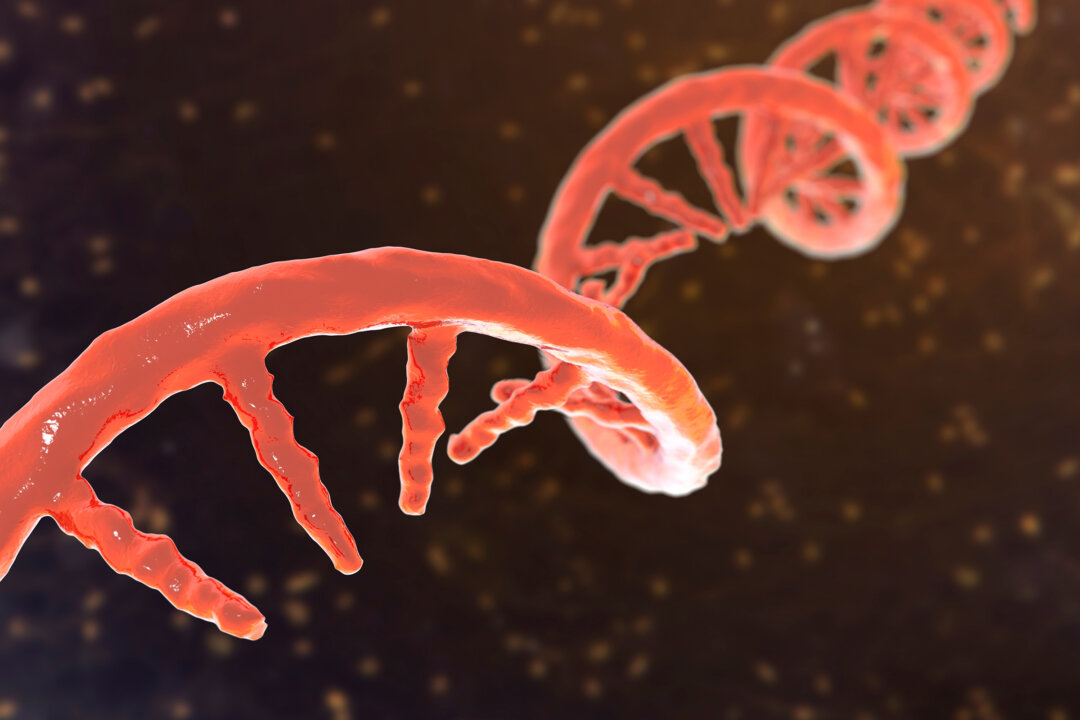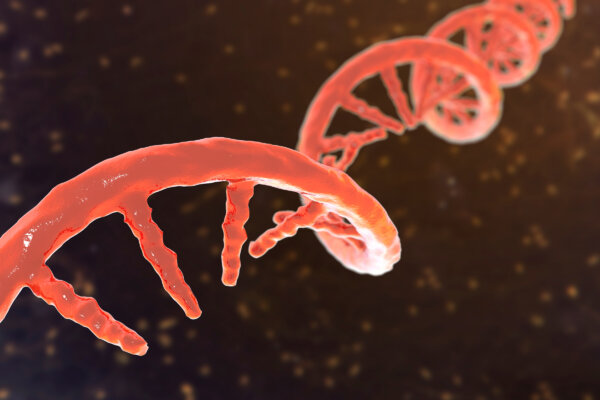Modified RNA in COVID Vaccines May Contribute to Cancer Development: Review
In a review published on April 5, researchers argue that modification to mRNA causes immune suppression that may contribute to cancer development.
Uridine is a key component of mRNA. However, when uridine is injected into the body, the immune system rapidly degrades it.
Therefore, scientists at Pfizer and Moderna modified the uridine to N1-methyl-pseudouridine (m1-psi) so it could last longer.
However, research suggests this modification may reduce immune responses. “Within the framework of COVID-19 vaccination, this inhibition ensures an appropriate spike protein synthesis and a reduced immune activation,” the authors wrote in the study’s abstract.
The authors are concerned the modification may promote cancer in susceptible individuals.
“We suggest that future clinical trials for cancers or infectious diseases should not use mRNA vaccines with a 100% m1Ψ (m1-psi) modification, but rather ones with the lower percentage of m1Ψ modification to avoid immune suppression,” they wrote.
Modified vs. Natural RNA
Modified and natural RNA stimulate different responses in the body. Modified RNA tends to produce more aberrant proteins, potentially contributing to cell genome instability.
Most importantly, modified RNA induces a more muted response in the body than natural RNA, which may have broad implications for the body’s ability to fight other infections and cancers.
The authors cited studies finding that natural RNA tended to stimulate the activity of type-1 interferon—a key anti-tumor substance—and other immune chemicals. Contrastingly, modified RNA stimulates a milder response and is associated with immune chemicals that promote tolerance of foreign RNA injections.
A critical piece of evidence the review authors cited comes from a mice study in Thailand.
In the study, researchers injected natural mRNA and 100 percent modified RNA into two different groups of mice with melanoma.
The Thai researchers found that when injected with natural RNA, the body had a more robust immune response than when injected with modified RNA.
Furthermore, the prognosis of the melanoma mice also differed.
The survival rate in the mice group without modified RNA was 100 percent. Conversely, in the group with the modified uridine, only half of the mice survived.
In their abstract, the Thai researchers wrote that an mRNA vaccine induces type-1 interferon production and downstream signals crucial for controlling tumor growth and metastasis.
The review authors interpreted the findings to mean that adding 100 percent of “[m1-psi] to the mRNA vaccine in a melanoma model stimulated cancer growth and metastasis, while non-modified mRNA vaccines induced opposite results.”
The Cancer Debate
However, Tanapat Palaga, who has a doctorate in microbiology and immunology, is a professor of microbiology at Chulalongkorn University in Bangkok, Thailand, and is the senior author of the Thai study, told The Epoch Times in an email that the review took his team’s “results out of the context.”
While Mr. Palaga agreed that the unmodified RNA is associated with “robust anti-tumor immunity,” he added that their study “did not indicate, conclude or suggest that modified mRNA promotes tumor formation.
“Modified RNA … just simply did not induce IFN type I production,” he wrote.
The review authors were careful to highlight that they are not suggesting that modified RNA causes cancer but that its effects may lead to an environment that aids in the development of cancers.
“Those who do not read in depth will be quick to say that we are AFFIRMING that mRNA vaccines cause cancer,” the review authors wrote to The Epoch Times in an email, pointing to a passage in their paper stating, “It is important to clarify here that mRNA vaccines do not cause cancer; but they could stimulate its development … We are more concerned with experimental and clinical data with regard to the latter.”
Dr. Tian Xia, a professor in the Division of NanoMedicine at the University of California–Los Angeles, told The Epoch Times that the basis of m1-psi is to reduce immunotoxicity “not to suppress the innate and adaptive immunity,” and the cancer-causing conclusion doesn’t have “strong scientific support.”
Reduce Modified RNA Use
The review authors suggested that mRNA therapeutics should include a “lower percentage” of modified RNA in the future.
They also wrote that they do not discourage the use of mRNA injections in cancer treatment, given that natural or unmodified RNA reduces tumor growth, improves the efficiency of immune responses, and may potentially increase survival.
The authors told The Epoch Times that with COVID-19 mRNA vaccines, the scientists “only focused on maximizing the production of the spike protein” without considering other downstream effects.
“We have to do a deep reflection here: if you lower the [percentage] of modification, you have a less effective vaccine against SARS-CoV-2,” the authors wrote, but at the same time, there may be fewer unintended adverse effects.
Raquel Valdes Angues, a senior research associate at Oregon Health & Science University, told The Epoch Times that she and her colleagues welcome the review “addressing the potential implications of using COVID-19 [m1-psi]-modified mRNA vaccines on cancer progression and metastasis.”
She highlighted that modified RNA has been shown to impede interferon signaling, and given its complex role in tumor biology, “it becomes imperative to exercise caution when integrating modified [m1-psi] mRNAs for therapeutic use” in live animals and humans.
“These considerations warrant thorough investigation and thoughtful deliberation in the pursuit of mRNA-based therapeutics,” she said.
This article has been archived for your research. The original version from Epoch Times can be found here.






